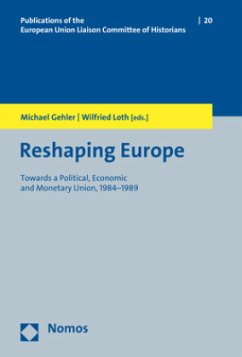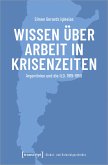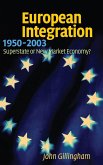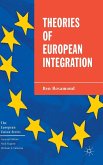How can the new dynamic in European integration politics during the second half of the 1980's be explained? What were the driving forces behind the Single European Act, the achievement of the Single Market, the Schengen agreement, the EC's expansion to the south, and the new steps towards Monetary Union and the Common Foreign and Security Policy? In this book, using numerous discoveries from the archives, historians from 12 countries show how the European Community reacted to the challenges of globalisation and the reform initiatives by Mikhail Gorbachev. In doing so, they write a new chapter in the history of European integration: the emergence of the European Union.With contributions by Marta Alorda, Andrea Brait, Frédéric Bozo, Eric Bussière, Deborah Cuccia, Alice Cunha, Anjo G. Harryvan, Michael Gehler, Gilles Grin, Maria Eleonora Guasconi, Georg Kreis, Wilfried Loth, Marco Lovec, N. Piers Ludlow, Simone Paoli, Nicolae Paun, Kiran Klaus Patel, Daniela Preda, Frederike Schotters, Jasper Trautsch, Jan van der Harst, Laurent Warlouzet
Bitte wählen Sie Ihr Anliegen aus.
Rechnungen
Retourenschein anfordern
Bestellstatus
Storno








